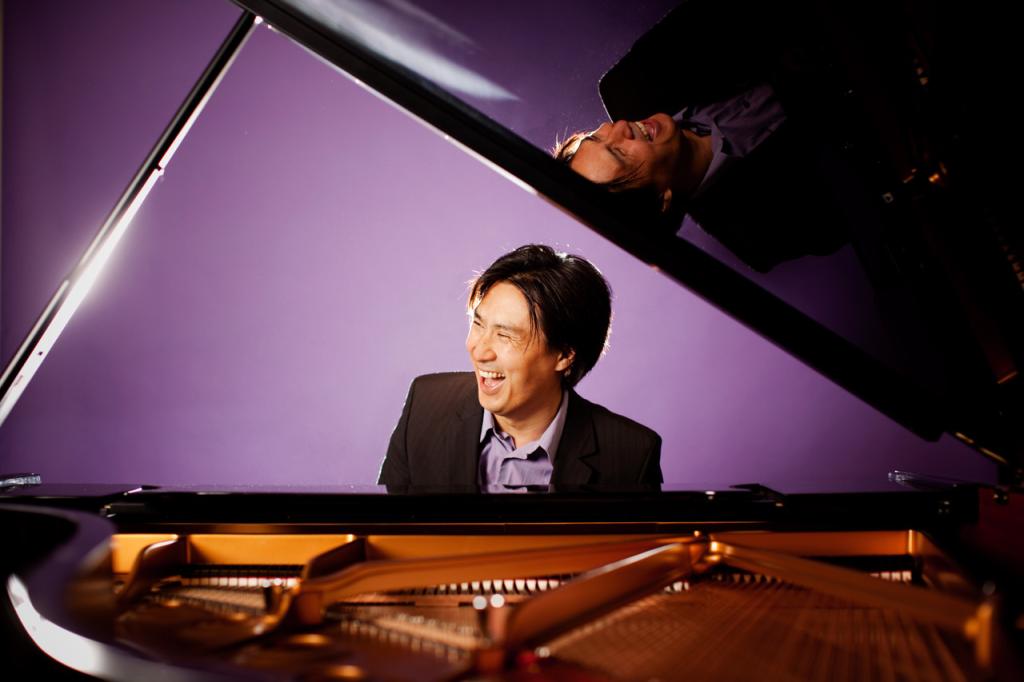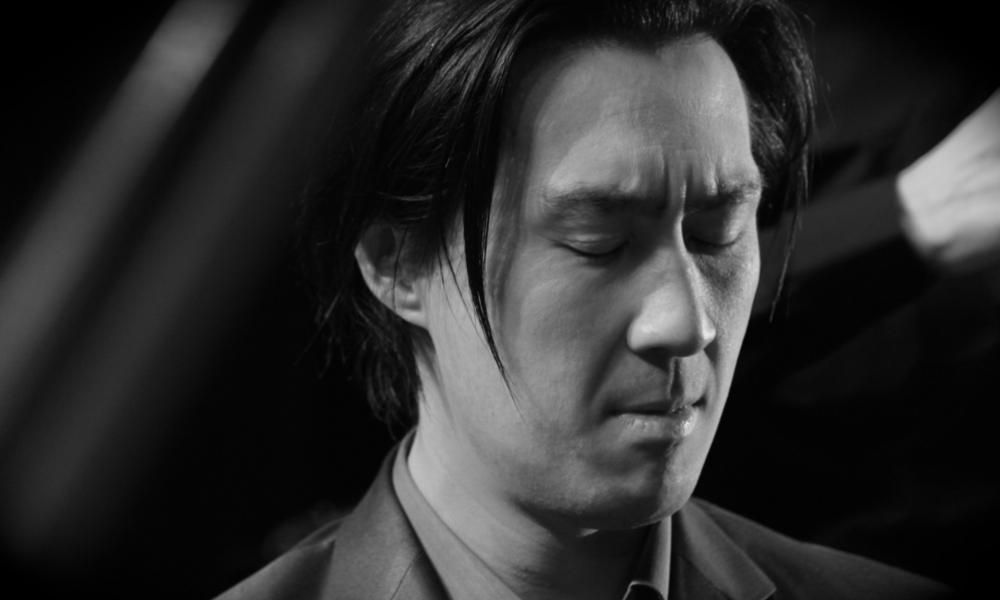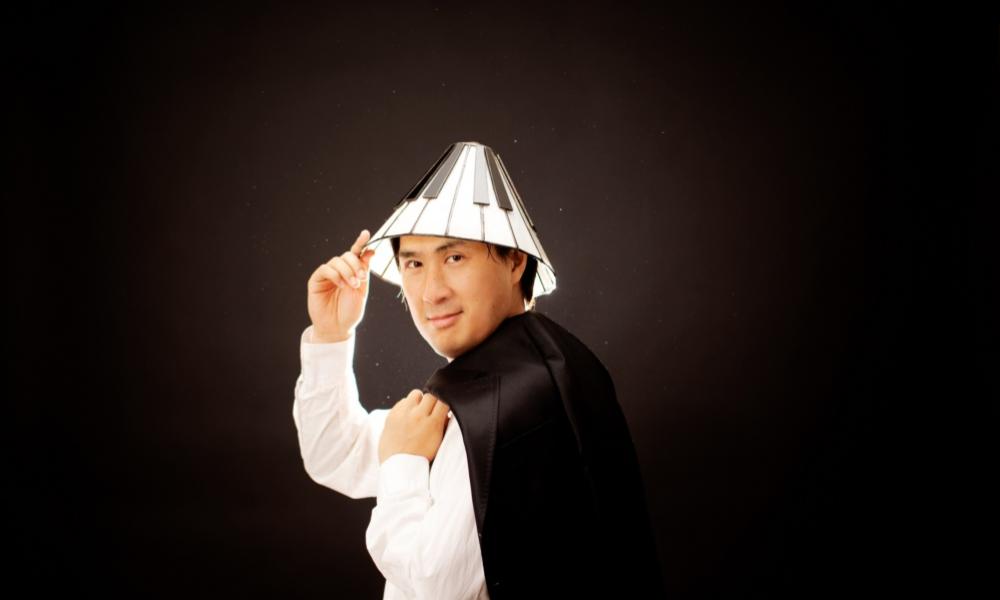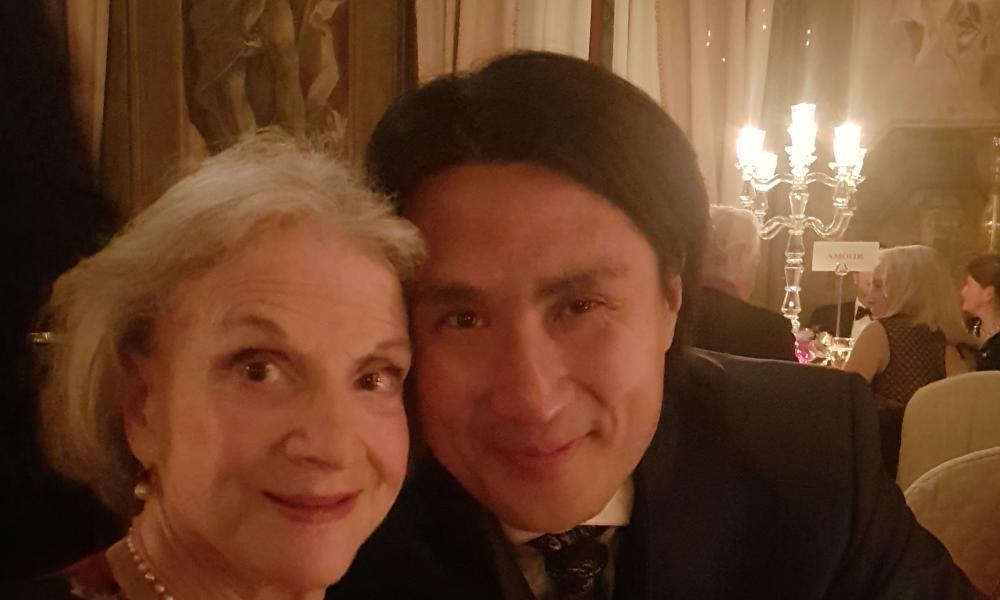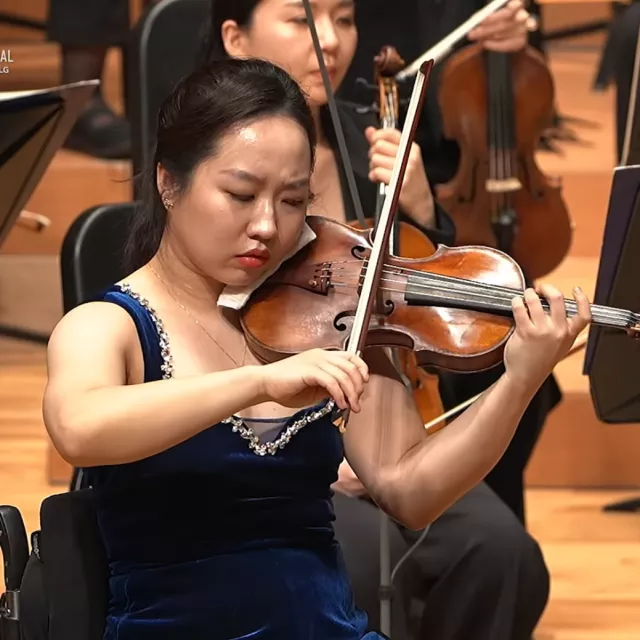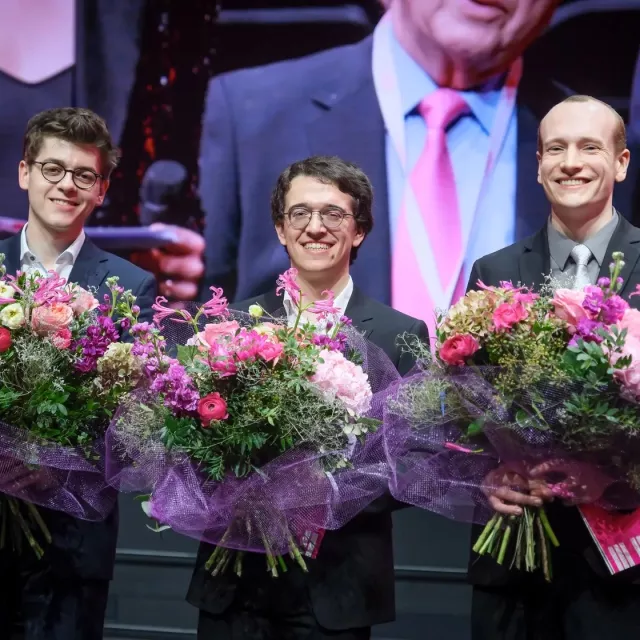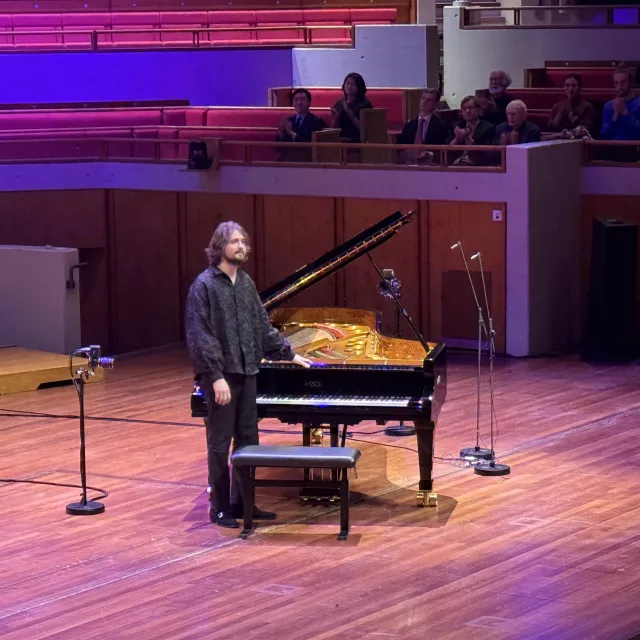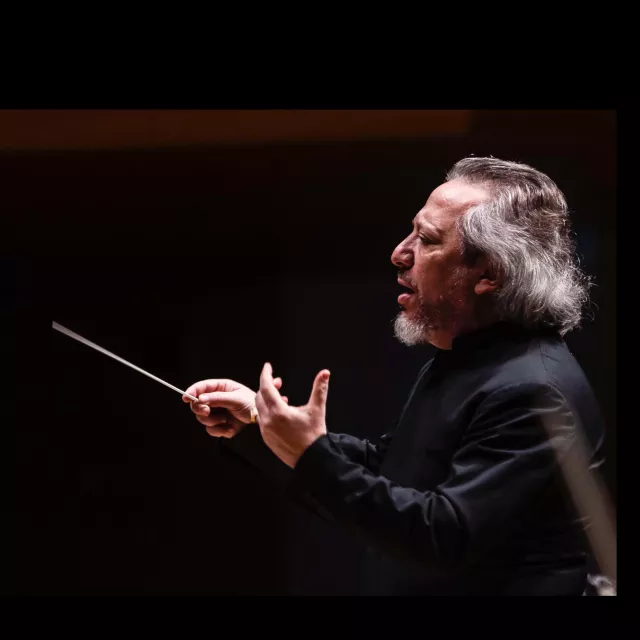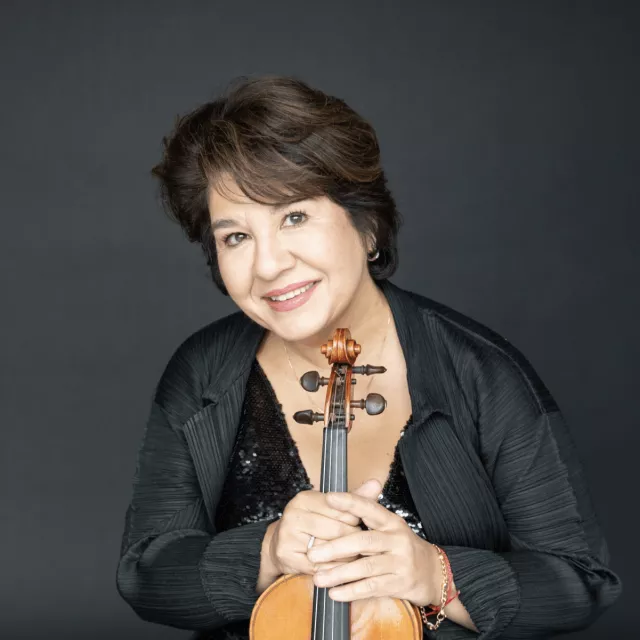WFIMC: It’s a bit like Victor Borge—an extraordinary pianist who struggled with conventional concerts but found immense success by doing things his own way. So when he found out that he could do things differently, he would actually have a lot of success. But I am wondering: how did this whole success story of Igudesman and Joo evolve? What was your first performance together, and how did that come together?
Hyung-ki Joo: Our first performance together was back in 1989 at the British Music Information Center. Aleksey had composed a piece that’s now known as the “Bastard Sonata.” We were the final act of the evening, and while we were waiting backstage, we spotted some wine meant for the post-concert reception. We were just 15 or 16 at the time and thought, “Why not?” So you can imagine, we had to have a little taste! The piece has an improvised section where we should go wild, and we went really wild! Maybe the wine might have added a little extra oomph. When we came out of the improvised section, Aleksey was supposed to come in after a few bars, but he was so caught up in the moment that he totally missed his entrance. It was hilarious- at least to us!. But that was our first and last drink before a performance. We learned our lesson.
WFIMC: I’ve seen you in different parts of the world. Audiences have a different sense of humor in, say, Asia, from how audiences would react here in Europe. Does that change the way you perform, the way you project?
Hyung-ki Joo: Absolutely. Every country has its own unique sense of humor. In places like Korea or Japan, irony and sarcasm is not a part of the culture so it would never land the same way it might in Europe or the States. Italy, on the other hand, loves humor using language—France is big on slapstick, which explains why they adore Jerry Lewis. But then, there are these universal elements of humor too—look at Mr. Bean or Charlie Chaplin. Our shows don’t rely heavily on language, but there’s still some language involved. So when we perform in a place like China, we use our material that is closest to that universality of Chaplin or Mr. Bean, which of course, needs no language. At the same time, we always make a real effort to learn local phrases and connect with the audience in their language, even if it’s just a small word or phrase. It’s sometimes very challenging in regards to pronunciation, but even if we screw it up, it’s worth it to make that connection with the public!
WFIMC: Among the artists you perform together with are some people that you would not usually associate with comedy. Take for example Gidon Kremer. How did you come to work together with him?
Hyung-ki Joo: Oh, that was a bit of a surprise for us too! When Gidon Kremer wanted to work with us, we were shocked—in a good way, of course. That started a chain reaction of other serious classical musicians wanting to do something with us. For example, not too long afterwards, we heard that Emanuel Ax was interested in collaborating too. Now, Ax has this reputation as a very serious classical musician, you know, performing Haydn and Beethoven with people like Yo-Yo Ma. But the next thing you know, we’re all invited to perform at Bernard Haitink’s 85th birthday, and the three of us are goofing around, chasing each other around the piano, and most people had never seen Ax in that light. Haitink wrote us something unforgettable after his party- “Aleksey Igudesman and Hyung-ki Joo played at my 80th birthday celebrations. I nearly died laughing. I’d like to invite them back for my 85th, but that might be considered reckless… Great musicians, great fun.”
I just performed a few months ago at the Vienna State Opera with Asmik Grigorian- an opera singer who is celebrated for her serious and dramatic roles. The two of us created and performed a show called, “A Diva is Born”, and if I may be honest with you, the Vienna Staatsoper had never experienced something like this before. It was a revolution of sorts, full of theatrical surprises, critical satire, and a lot of humour.

With Asmik Grigorian at the Vienna Staatsoper (©Michael Pöhn)
As for Gidon, there’s a short story and a longer story. The short story is that he saw us at the Bergen Festival where he was performing with Kremerata Baltica. We had the late-night spot, and after he finished his concert, he came over to check out ours. Afterwards, he came backstage and said, “I’d like to invite you to come to my Lockenhaus festival,” which was only a few weeks later. And then, while we were at Lockenhaus, he asked us, “How would you like to do something together with me and work with my orchestra?” So, we ended up working with him for about three years, creating and touring shows together. Like many classical musicians, Gidon might not come across as having a funny persona, but he has an incredibly curious mind. He knows so much about all kinds of things—whether it's theater, movies, humor, literature, or poetry. We found that our worlds had a lot of common points, and he was so open to trying so many things outside of his comfort zone. Very admirable, and I learnt a lot from that experience.
